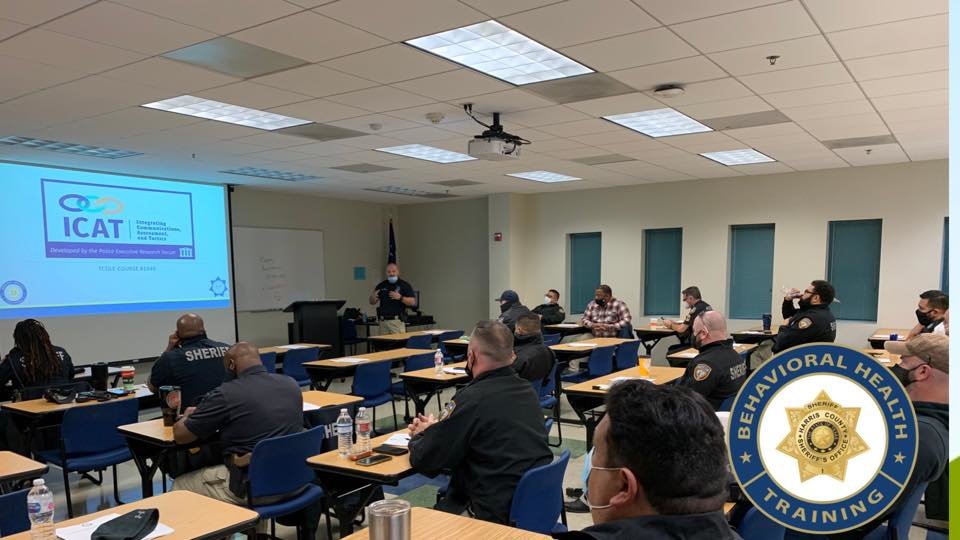HCSO Mental Health and Jail Deferment Division works to support residents in crisis
Harris County Sheriff’s Office Sergeant Jose Gomez says he’s proud to be one of the first officers in the Harris County Mental Health and Jail Diversion Program, a program that works to …
This item is available in full to subscribers.
Attention subscribers
To continue reading, you will need to either log in to your subscriber account, or purchase a new subscription.
If you are a current print subscriber, you can set up a free website account and connect your subscription to it by clicking here.
If you are a digital subscriber with an active, online-only subscription then you already have an account here. Just reset your password if you've not yet logged in to your account on this new site.
Otherwise, click here to view your options for subscribing.
Please log in to continue |
HCSO Mental Health and Jail Deferment Division works to support residents in crisis
Harris County Sheriff’s Office Sergeant Jose Gomez says he’s proud to be one of the first officers in the Harris County Mental Health and Jail Diversion Program, a program that works to help those facing mental health crises or dealing with intellectual and developmental disabilities have positive interactions with law enforcement.
"I was one of the first members that began with the crisis intervention response team, when (HCSO) first formed it (in 2011 or 2012) that paired a mental health peace officer … with a mental health clinician from the Harris Center for Mental Health and IDD, which is our local mental health authority,” Gomez said.
Gomez spent nearly seven years on that team and said he felt it was one of the best units he’s ever been involved in. The program allows officers with specialized training to identify situations on police calls wherein a disturbance is caused by someone facing a mental health crisis such as suicidal tendencies, depression, anxiety disorders or other issues. Once the situation is understood, the clinician from the Harris Center can step in and help to deescalate the situation and provide a more positive outcome for the individual in crisis and those affected by that person’s behavior, Gomez said. The program, he said, has been quite effective in improving results for both officers and those they interact with.
Gomez said an evaluation of the program was set up in 2019 and conducted by Arnold Ventures and the University of Houston to evaluate the program. The program, which also issues iPads to 20 deputies across HCSO’s Mental Health and Jail Diversion Program to help them connect to mental health professionals at the Harris Center, evaluated 400 calls for service.
“One of the things we found is that … of the 42-46% of the calls for service where a tablet was introduced to the scene where the deputy was able to connect the consumer out in the field with the clinician; it showed that over 40% to 45% (of suspects) were able to be left on scene because of the use of the tablet because of an appropriate assessment out in the field,” Gomez said.
Because the program significantly reduces the need to take suspects to jail, it saves the public money, Gomez said. He added that the program increases officer availability because with the clinicians’ aid, those calls are cleared faster and officers are available to move on to the next call.
The program also establishes follow-up services for the person facing a mental health crisis, Gomez said. Once the situation is de-escalated and everything is under control, the Harris Center connects the suspect to community resources that can help them face their situations from a stronger standpoint.
“So, what that does is reduce the likelihood of (HCSO) to have to come back out (to the scene) because now (the suspect) is connected to the Harris Center,” Gomez said. “And they’re connected to resources which is huge, and all without having to transport (to a jail or mental health facility).”
Keywords
HCSO






